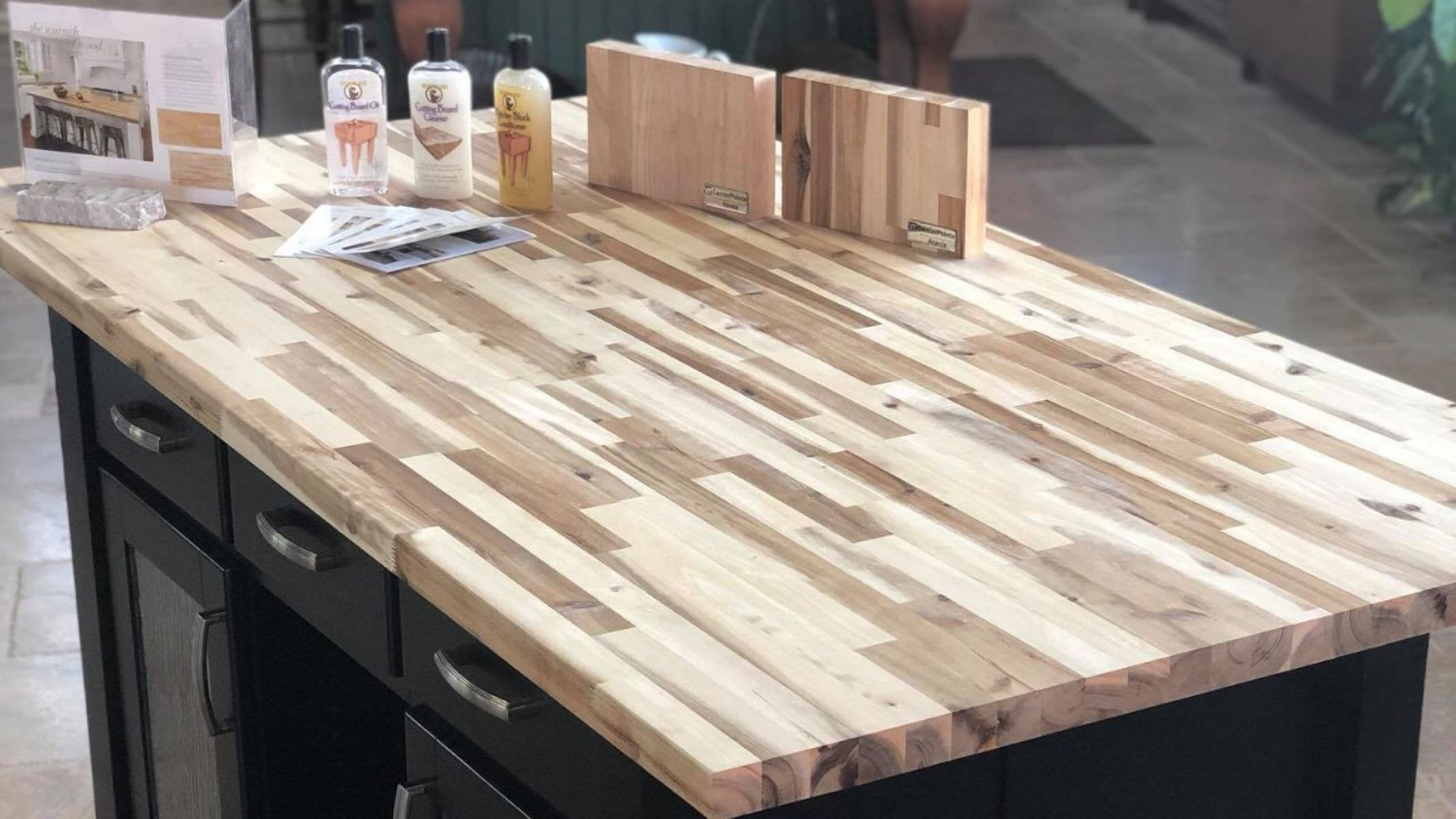

Articles
How Durable Is Butcher Block Countertops
Modified: December 7, 2023
Discover the durability of butcher block countertops in our informative articles. Find out why this popular choice offers both style and strength for your kitchen.
(Many of the links in this article redirect to a specific reviewed product. Your purchase of these products through affiliate links helps to generate commission for Storables.com, at no extra cost. Learn more)
Introduction
Butcher block countertops are a popular and versatile choice for both residential and commercial kitchens. Made from thick strips of wood that are glued together, butcher block countertops offer a warm and natural aesthetic that can elevate the look of any space. However, when it comes to choosing a countertop, durability is a key factor to consider.
In this article, we will explore the durability of butcher block countertops, understand the factors that affect their longevity, and learn how to maintain and repair them to ensure their lasting beauty. Whether you are a homeowner contemplating a kitchen remodel or a restaurant owner seeking a reliable food preparation surface, this article will provide you with valuable insights into the durability of butcher block countertops.
Key Takeaways:
- Butcher block countertops offer durability, resistance to scratches and heat, and a charming aesthetic. Proper maintenance, including sealing, cleaning, and preventive measures, can ensure their longevity in residential and commercial kitchens.
- Understanding the factors affecting butcher block countertop durability, such as moisture, sealing, and usage, is crucial for maintaining their beauty and functionality. Daily maintenance, preventive measures, and timely repairs can extend their lifespan and preserve their natural charm.
Read more: How To Sand Butcher Block Countertops
What Are Butcher Block Countertops?
Butcher block countertops are a type of countertop surface that is constructed by gluing together several strips of wood to create a thick and sturdy slab. The wood used in butcher block countertops is typically hard and dense, such as maple, cherry, or oak, which ensures its durability and resistance to wear and tear.
What sets butcher block countertops apart from other types of countertops, such as granite or quartz, is their unique appearance and natural charm. The wood grain patterns add warmth and character to any kitchen, creating a welcoming and rustic ambiance.
Butcher block countertops have been used for centuries in traditional butcher shops and are known for their resilience and ability to withstand heavy-duty use. Today, they are popular not only in commercial food preparation settings but also in residential kitchens as a versatile and practical choice.
One of the key benefits of butcher block countertops is their durability. When properly cared for, they can withstand the demands of daily use and maintain their beauty for many years. However, it is important to understand the factors that contribute to their durability and how to maintain them to ensure their longevity.
The Durability of Butcher Block Countertops
When it comes to durability, butcher block countertops hold their own among other countertop materials. The construction of butcher block countertops, with multiple strips of wood glued together, provides strength and stability. The thickness of the wood slab also adds to its durability, allowing it to withstand the test of time.
Butcher block countertops are highly resistant to scratches and dents. The natural hardness and density of the wood used, such as maple or oak, make it difficult for knives and other sharp objects to leave deep marks on the surface. However, it is still advised to use cutting boards and trivets to prevent any potential damage.
Another advantage of butcher block countertops is their ability to handle heat. Wood is a poor conductor of heat, which means that it absorbs and distributes heat slowly. This makes butcher block countertops great for placing hot pots and pans directly on the surface without causing damage. However, it is still recommended to use hot pads or trivets to protect the wood from prolonged exposure to high temperatures.
One factor that may affect the durability of butcher block countertops is moisture. Wood naturally expands and contracts with changes in humidity, and excessive moisture can lead to warping or cracking. To mitigate this, butcher block countertops are typically sealed with a protective finish, such as mineral oil or a food-safe varnish. Regular resealing and proper maintenance can help protect the wood from moisture damage and ensure its long-lasting durability.
It is important to note that while butcher block countertops are considered durable, they are not completely impervious to wear and tear. Over time, the wood may develop small surface scratches or signs of use. However, these imperfections can add to the character and charm of the countertop, giving it a distinct and lived-in look.
Overall, with proper care and maintenance, butcher block countertops can last for many years, providing a durable and visually appealing surface for all your culinary needs.
Factors Affecting the Durability of Butcher Block Countertops
While butcher block countertops are known for their durability, there are several factors that can impact their longevity. Understanding these factors and taking appropriate measures can help maximize the lifespan of your butcher block countertops:
- Moisture and Humidity: One of the most important factors to consider is the level of moisture and humidity in your kitchen. Wood is sensitive to changes in moisture, so it’s crucial to maintain a consistent humidity level. High humidity can cause the wood to warp or crack, while low humidity can lead to shrinkage. Use a humidifier or dehumidifier, depending on your climate, to create a stable environment for your countertops.
- Sealing and Finishing: Properly sealing and finishing your butcher block countertops is essential for their durability. A high-quality sealant or finish will create a protective barrier against moisture, stains, and bacteria. Regularly applying a food-safe mineral oil or butcher block conditioner will help preserve the wood and maintain its beauty over time.
- Regular Cleaning: Keeping your butcher block countertops clean is crucial for their longevity. Avoid using harsh chemicals or abrasive cleaners that can strip away the protective finish. Instead, use a mild soap or vinegar solution and a soft cloth to wipe down the surface after each use. Be sure to thoroughly dry the countertops to prevent moisture from seeping in.
- Proper Usage: While butcher block countertops are durable, they should be treated with care. Avoid cutting directly on the surface without a cutting board, as this can lead to scratches and dents. Use trivets or hot pads when placing hot pans or cookware on the countertop to prevent heat damage. Additionally, be mindful of any spills, especially acidic liquids like citrus juice or vinegar, as these can stain or etch the wood.
- Regular Maintenance: To ensure the longevity of your butcher block countertops, regular maintenance is essential. This includes sanding and refinishing the surface every few years to remove any deep stains or scratches and renew the protective seal. Additionally, inspect the countertops for any signs of damage or wear regularly and address them promptly to prevent further issues.
By considering these factors and implementing proper care and maintenance routines, you can significantly enhance the durability and lifespan of your butcher block countertops. With proper attention, they can remain a beautiful and functional addition to your kitchen for years to come.
To maintain the durability of butcher block countertops, regularly oil them with food-grade mineral oil to prevent drying and cracking. Avoid placing hot pots directly on the surface to prevent scorching.
Daily Maintenance for Butcher Block Countertops
Maintaining your butcher block countertops on a daily basis is crucial for their longevity and overall appearance. By following these simple daily maintenance tips, you can keep your countertops in pristine condition:
- Wipe Up Spills Promptly: Accidents happen in the kitchen, so it’s important to clean up spills as soon as they occur. Use a damp cloth or paper towel to wipe away any liquids or food particles on the surface. This will prevent stains and the potential for moisture damage.
- Use Cutting Boards: To protect the surface of your butcher block countertops from scratches and knife marks, always use cutting boards when chopping, slicing, or dicing. Avoid cutting directly on the countertop surface to maintain its smooth and uniform appearance.
- Avoid Excessive Moisture: While butcher block countertops are sealed with protective finishes, excessive moisture can still cause damage over time. Avoid leaving wet items or standing water on the countertop for extended periods. Wipe down the surface with a dry cloth or towel to ensure it remains dry and free of moisture.
- Regular Cleaning: Clean your butcher block countertops daily using mild soap and warm water. Avoid using harsh chemicals or abrasive cleaners as they can strip away the protective finish. Gently scrub the surface with a soft cloth or sponge, paying attention to any stubborn stains or food residue.
- Sanitizing: To keep your countertops free from bacteria and germs, it’s important to sanitize them regularly. You can use a mixture of water and vinegar or a food-safe disinfectant spray. Apply the solution to the surface, let it sit for a few minutes, then wipe it clean with a damp cloth.
- Preventive Maintenance: Inspect your butcher block countertops regularly for any signs of wear, scratches, or damage. Take proactive measures to address any issues promptly to prevent further damage. This may include sanding and refinishing the surface or applying a fresh coat of protective finish.
By incorporating these simple daily maintenance practices into your routine, you can ensure that your butcher block countertops remain beautiful, hygienic, and durable for years to come. Regular care and attention will preserve their natural charm and extend their lifespan, allowing you to enjoy their functionality and aesthetic appeal in your kitchen.
Preventing Damage to Butcher Block Countertops
Butcher block countertops are a durable and long-lasting choice for your kitchen, but it’s important to take precautions to prevent any potential damage. By following these guidelines, you can keep your countertops in excellent condition:
- Use Cutting Boards and Trivets: To protect the surface of your butcher block countertops from scratches, knife marks, and heat damage, always use cutting boards when preparing food and trivets when placing hot pots, pans, or dishes on the surface. This will prevent direct contact with the wood and prolong the lifespan of your countertops.
- Avoid Excessive Moisture: While butcher block countertops are sealed to resist moisture, it’s still important to avoid excessive exposure to water. Wipe away spills immediately and avoid placing wet items directly on the countertop. Additionally, don’t let standing water accumulate on the surface as it can seep into the wood and cause damage over time.
- Limit Exposure to Heat: Although butcher block countertops have good heat resistance, it’s best to avoid placing extremely hot items directly on the surface. Use trivets or hot pads to protect the wood from prolonged heat exposure, which can cause warping, cracking, or discoloration of the wood.
- Protect from Direct Sunlight: Avoid placing your butcher block countertops in direct sunlight for extended periods. Sun exposure can cause the wood to fade and age prematurely. If your countertops are exposed to sunlight, use curtains or blinds to minimize direct exposure or consider applying a UV-protective coating.
- Regularly Seal and Refinish: To maintain the durability of your butcher block countertops, it’s important to regularly seal and refinish the wood. This will replenish the protective layer and enhance the wood’s resistance to stains, moisture, and general wear and tear. Follow the manufacturer’s instructions or consult with a professional to determine the appropriate refinishing schedule.
- Avoid Harsh Chemicals and Abrasive Cleaners: When cleaning your butcher block countertops, avoid using harsh chemicals or abrasive cleaners that can damage the protective finish and strip the wood’s natural oils. Instead, opt for mild soap, warm water, or a vinegar-water solution. Gently scrub the surface using a soft cloth or sponge.
By taking these preventive measures and treating your butcher block countertops with care, you can protect them from potential damage and extend their lifespan. With proper maintenance and attention, your countertops will continue to enhance the beauty and functionality of your kitchen for years to come.
Repairing and Restoring Butcher Block Countertops
Over time, despite proper care and maintenance, your butcher block countertops may develop signs of wear, scratches, or stains. If this happens, don’t worry! With some simple techniques, you can repair and restore your countertops to their original beauty:
- Sanding: Sanding is an effective method to remove shallow scratches, stains, or blemishes from the surface of your butcher block countertops. Start with a low-grit sandpaper and gradually work your way up to a finer grit until the imperfections are smoothed out. Be sure to sand evenly and follow the wood grain to avoid creating uneven patches.
- Applying Mineral Oil: Mineral oil is a popular choice for nourishing and rejuvenating butcher block countertops. After sanding, ensure the surface is clean and dry, then apply a generous amount of mineral oil to the wood. Allow the oil to penetrate the surface for several hours or overnight, then wipe away any excess with a clean cloth. The oil will help restore the natural luster of the wood and add a protective layer.
- Using Wood Fillers: For deeper scratches or gouges, you can use wood fillers specifically designed for butcher block countertops. Choose a filler that matches the color of your countertop wood. Apply the filler to the damaged area, following the manufacturer’s instructions, and smooth it out with a putty knife. Allow the filler to dry completely before sanding and refinishing the surface.
- Refinishing: If your butcher block countertops have lost their sheen or the protective finish has worn off, refinishing is necessary. Start by sanding the entire countertop surface to remove any old finish and prepare the wood for a fresh coat. After sanding, clean and dry the countertop thoroughly, then apply a food-safe sealant or finish following the manufacturer’s instructions. Allow the finish to dry completely before using your countertops.
- Seeking Professional Help: If the damage to your butcher block countertops is extensive or you’re uncertain about tackling the repairs yourself, it may be wise to seek professional assistance. Professional woodworkers or countertop specialists can provide expert advice, repair services, and refinishing options to bring your countertops back to their original glory.
It’s important to note that regular maintenance and preventive measures can minimize the need for extensive repairs or restoration. However, if your countertops do require some attention, these repair and restoration techniques can help you revitalize their appearance and extend their lifespan.
Remember, the key to maintaining the durability and longevity of your butcher block countertops is consistent care, attention, and timely repairs when needed. By doing so, you can continue to enjoy the beauty and functionality of your countertops for years to come.
Conclusion
Butcher block countertops offer a unique and visually appealing option for your kitchen, providing durability and warmth that can enhance any space. Understanding their durability and taking proper care of them is essential to ensure they maintain their beauty and functionality over time.
Through proper maintenance, you can protect your butcher block countertops from common causes of damage, such as moisture, heat, and excessive wear. Daily maintenance practices, such as wiping up spills promptly, using cutting boards and trivets, and regular cleaning, can go a long way in preserving their longevity.
Factors like regular refinishing, proper sealing, and timely repairs can restore and extend the lifespan of your countertops. Sanding out scratches, applying mineral oil, and using wood fillers are effective techniques for repairing minor damages. Refinishing the surface can bring back its original luster and protect it from future wear and tear.
While butcher block countertops are durable, it’s important to be mindful of their limitations. Avoid excessive exposure to moisture, direct sunlight, and high heat to prevent potential damage. Following preventive measures and understanding the needs of your countertops can significantly enhance their lifespan.
In conclusion, butcher block countertops can provide a durable, functional, and visually appealing addition to your kitchen. By implementing proper care and maintenance practices, as well as promptly addressing any issues that arise, you can enjoy their beauty and longevity for many years to come.
Frequently Asked Questions about How Durable Is Butcher Block Countertops
Was this page helpful?
At Storables.com, we guarantee accurate and reliable information. Our content, validated by Expert Board Contributors, is crafted following stringent Editorial Policies. We're committed to providing you with well-researched, expert-backed insights for all your informational needs.
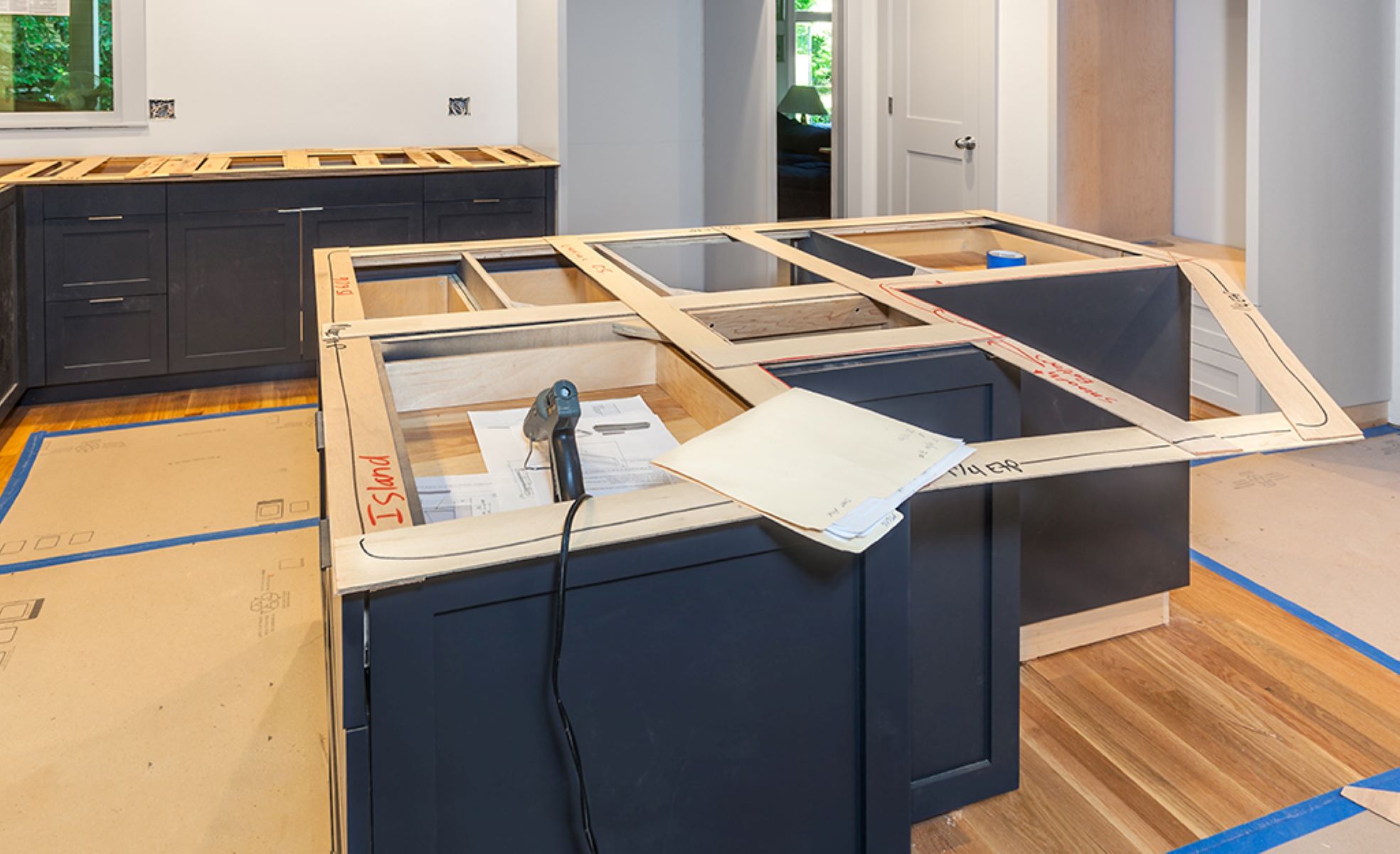
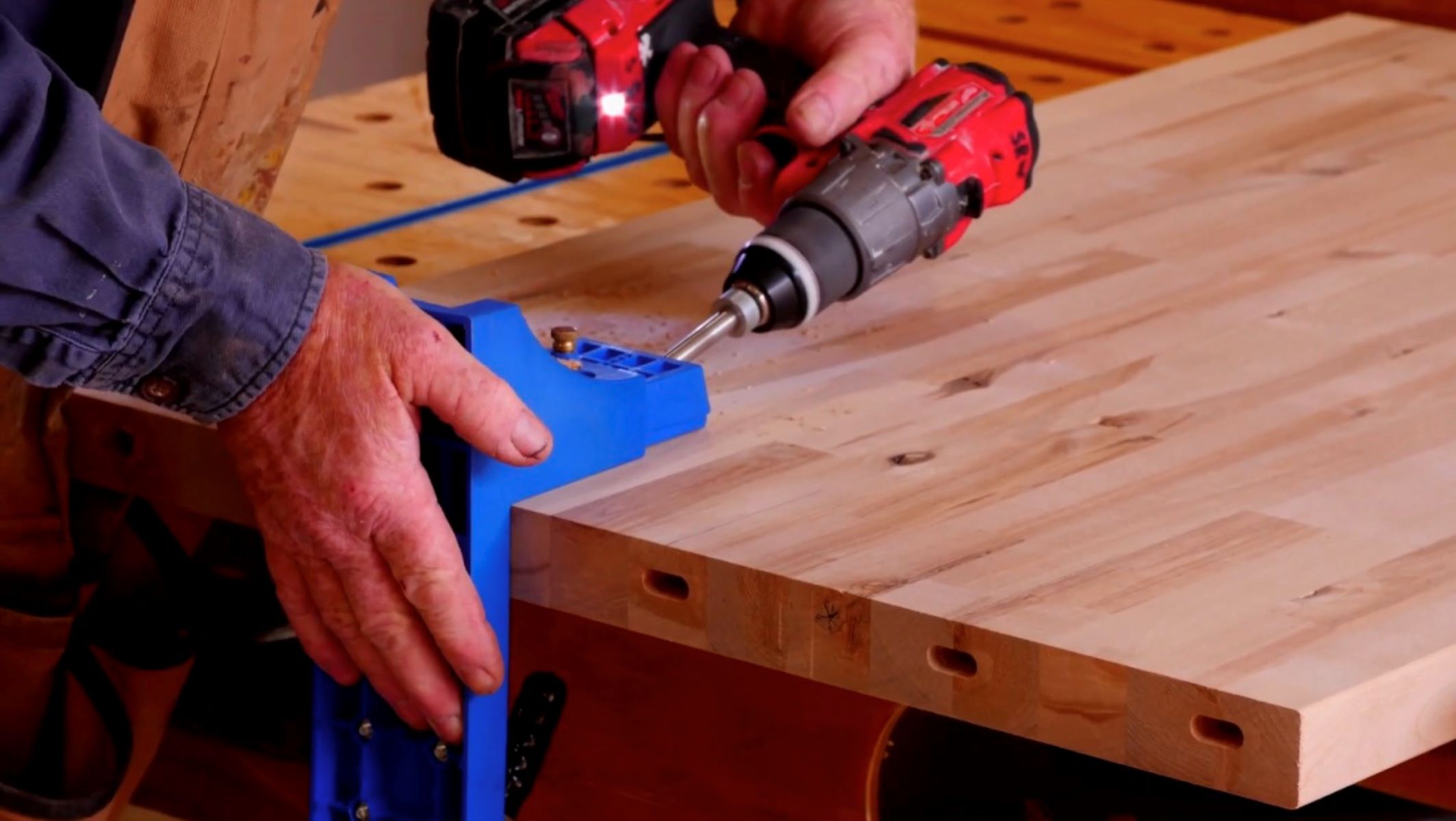
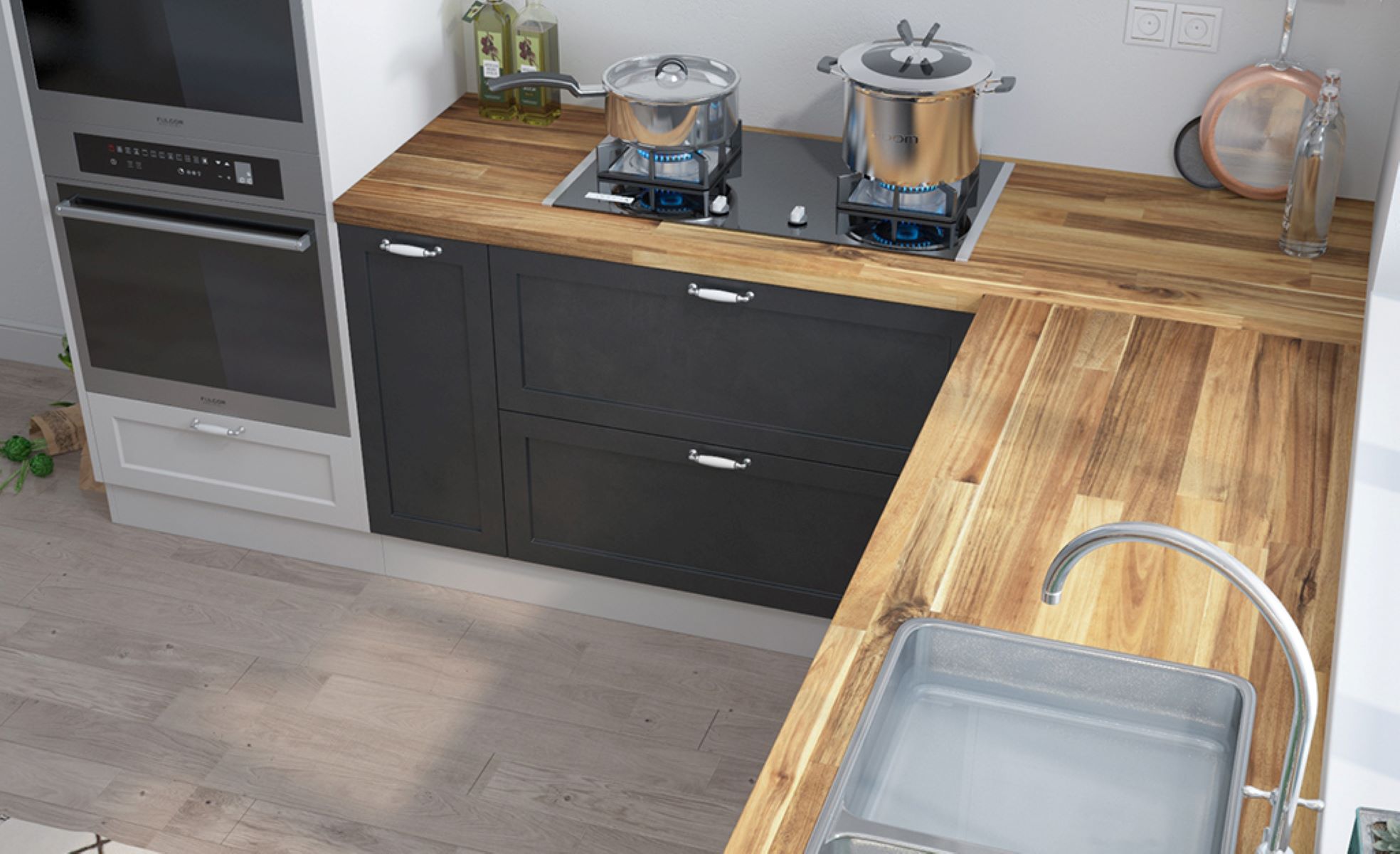
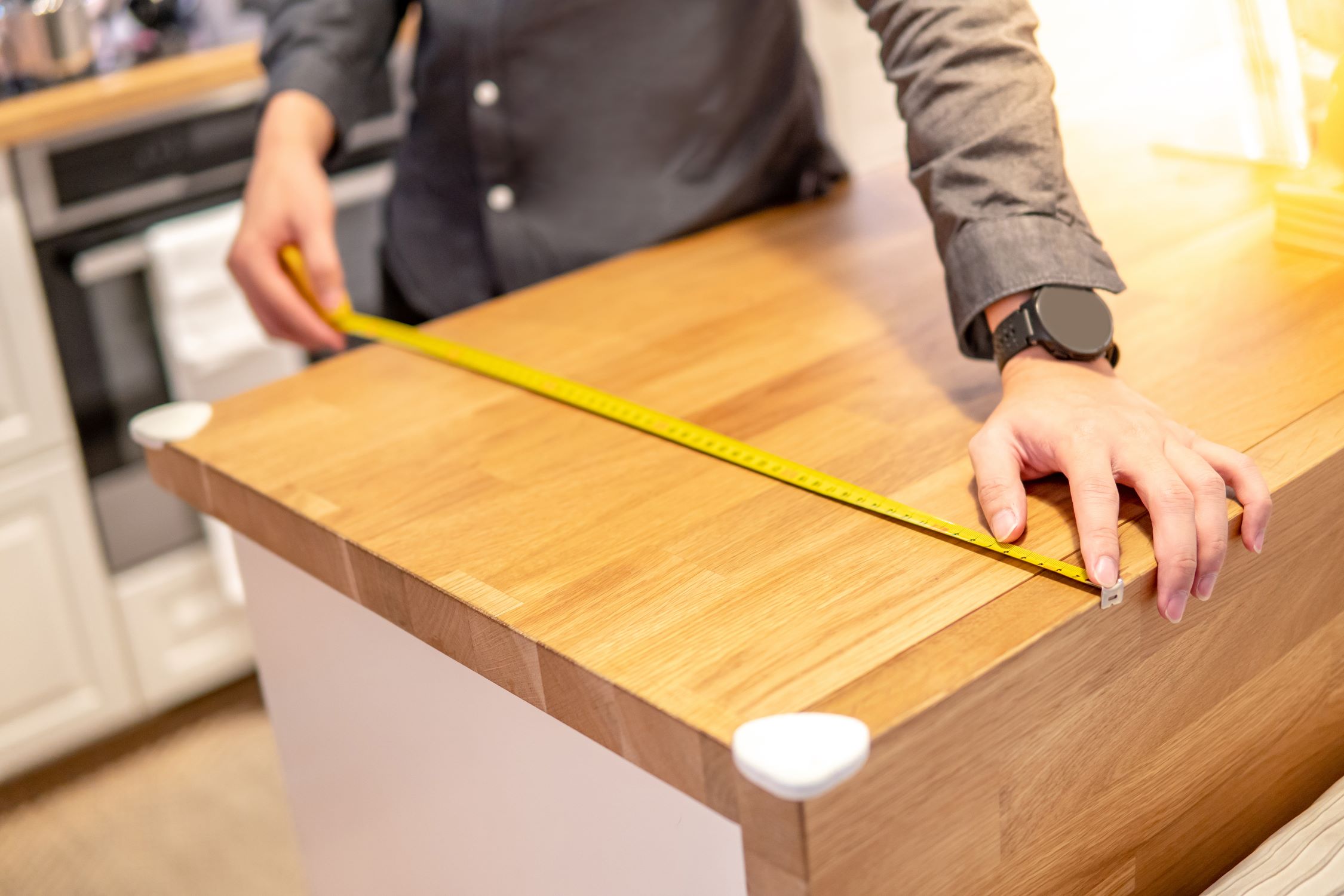
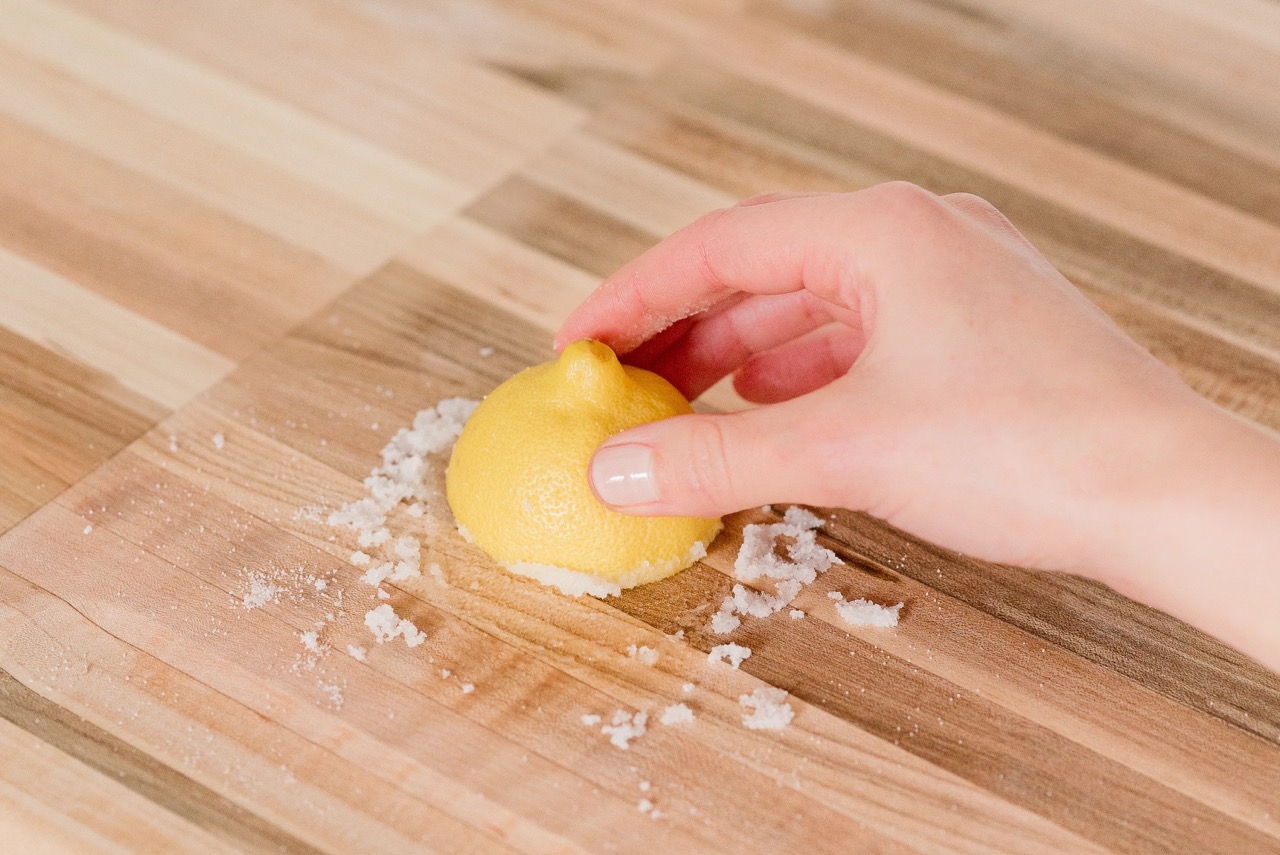
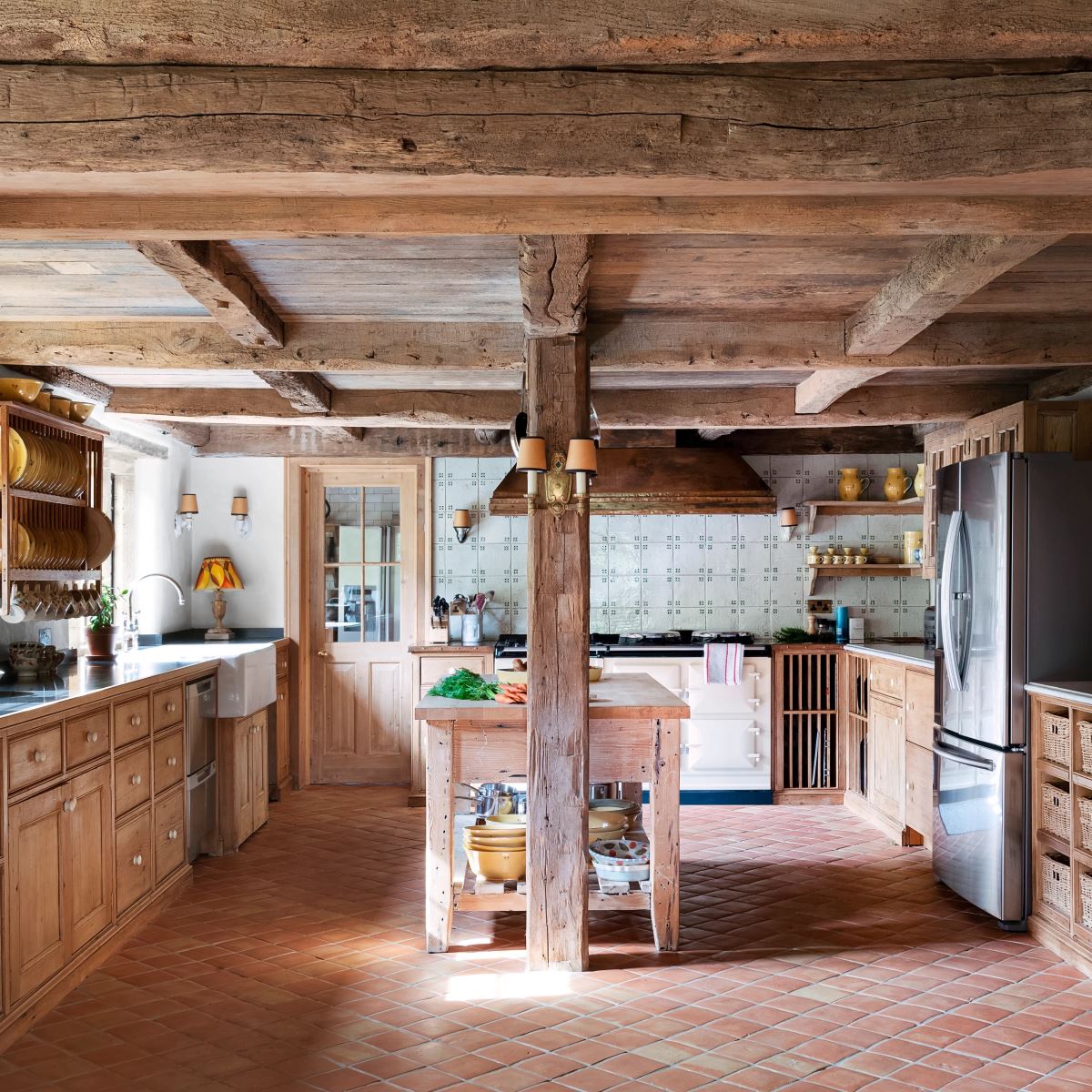
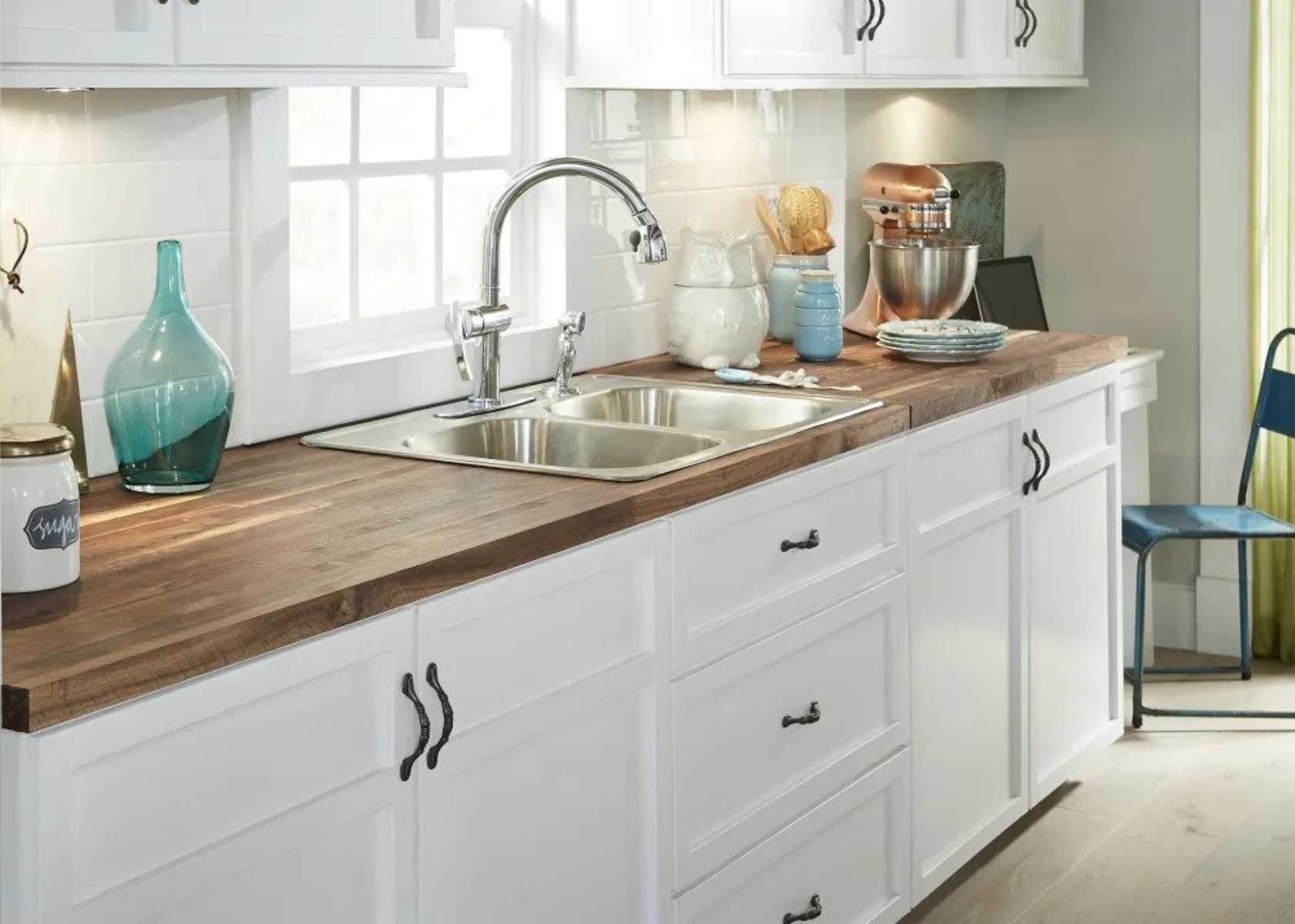
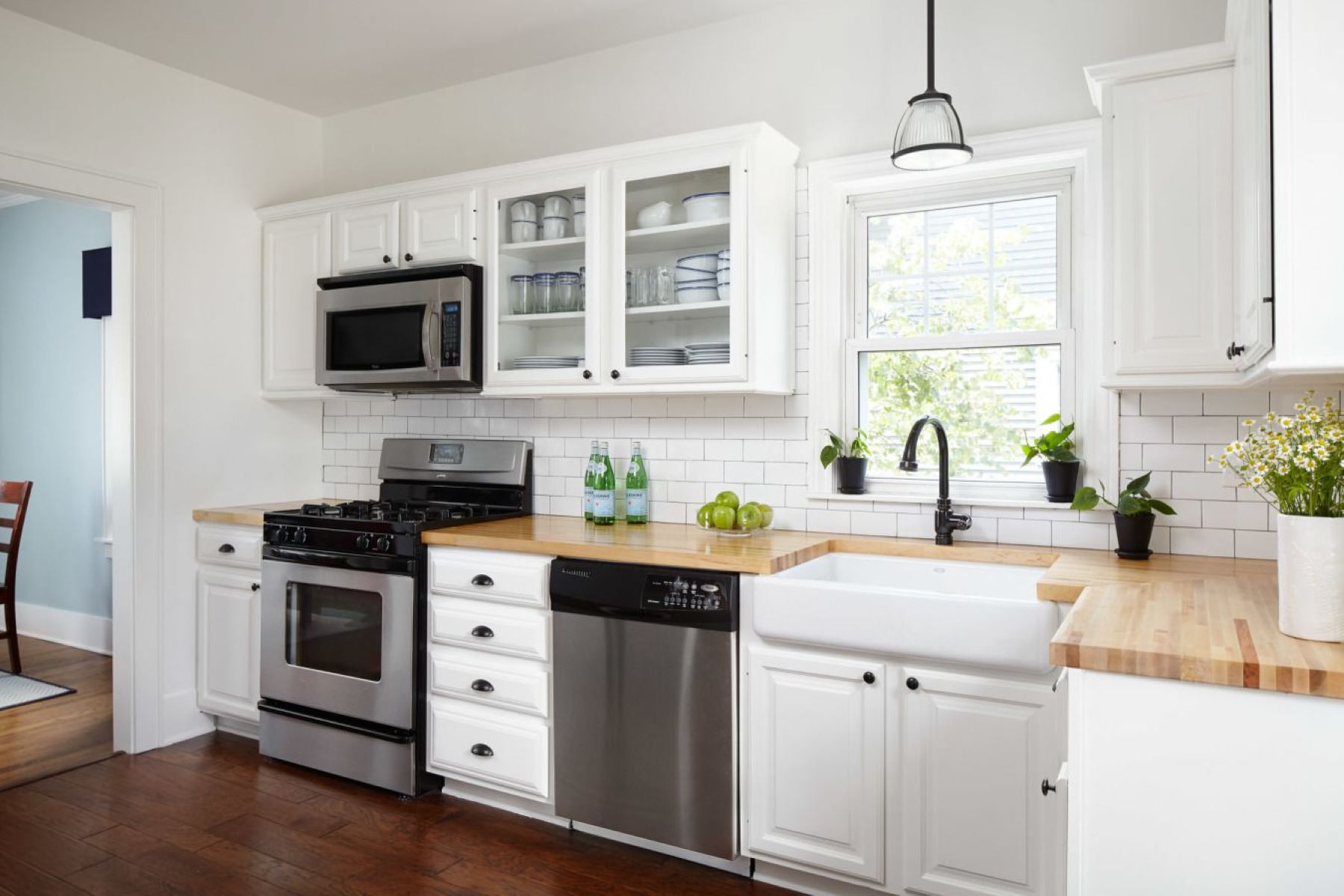
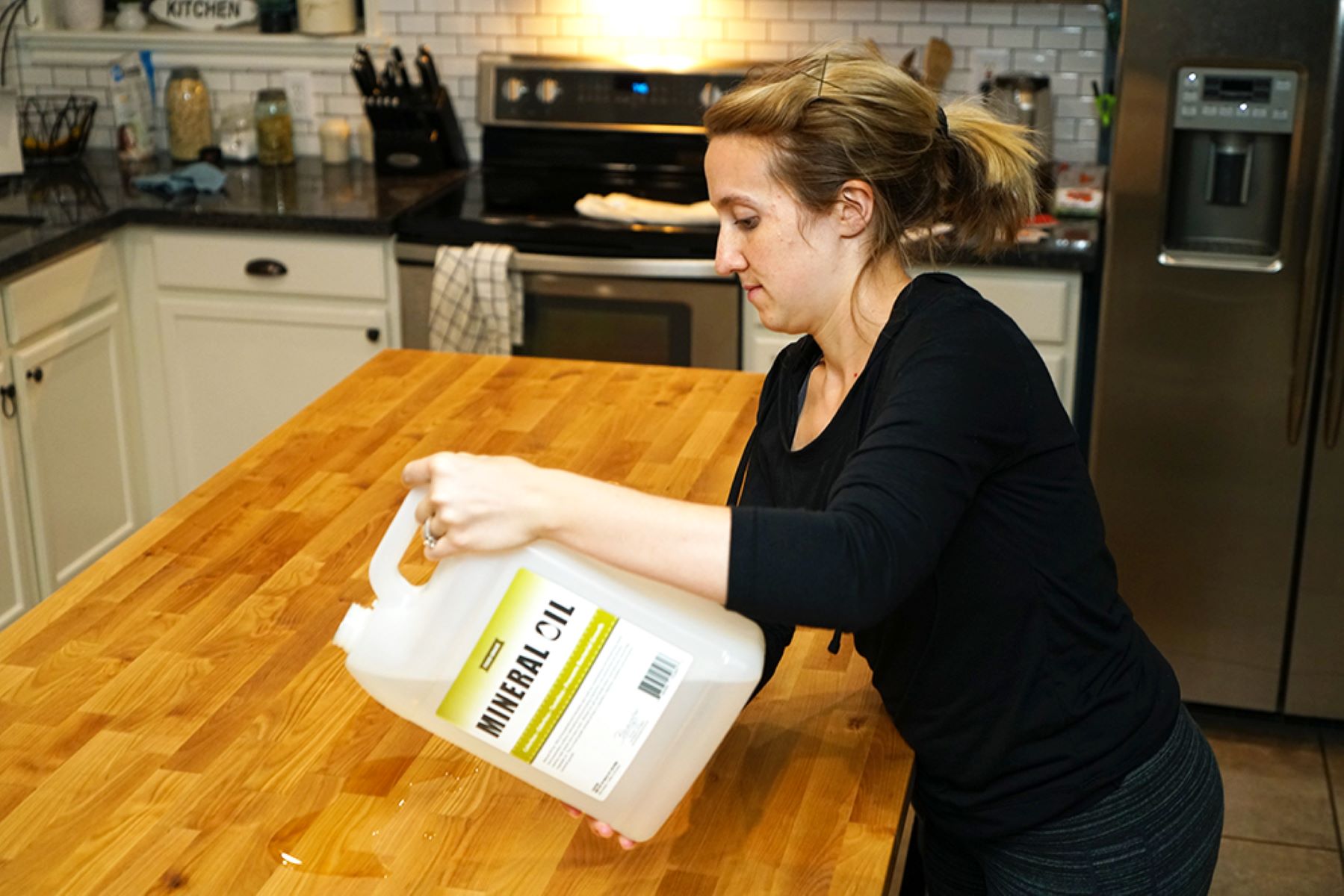
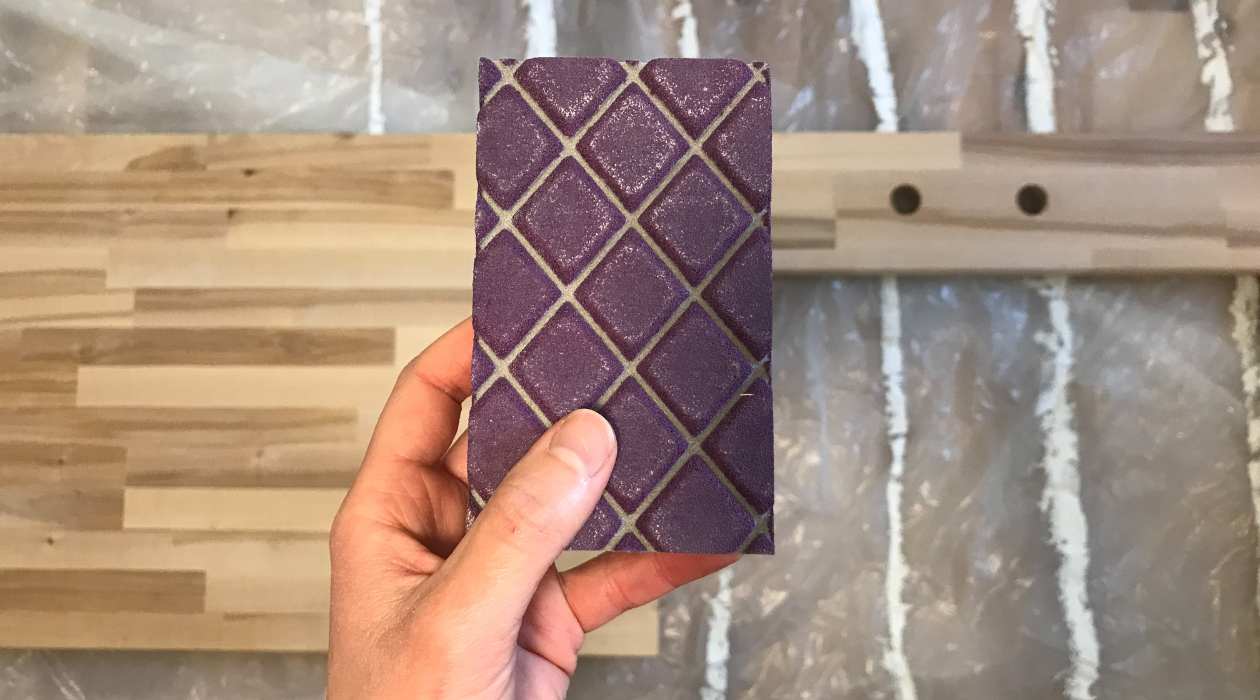
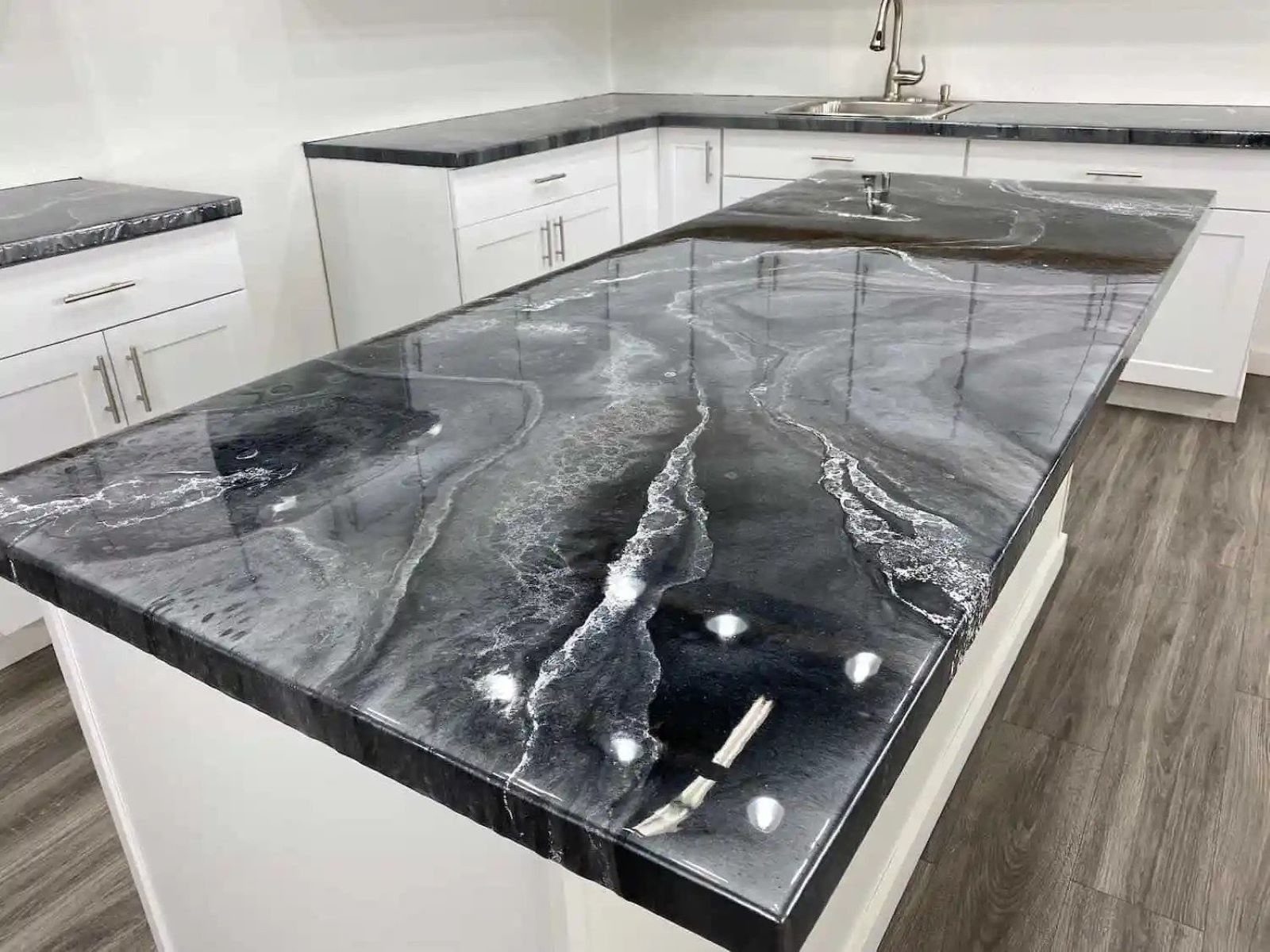
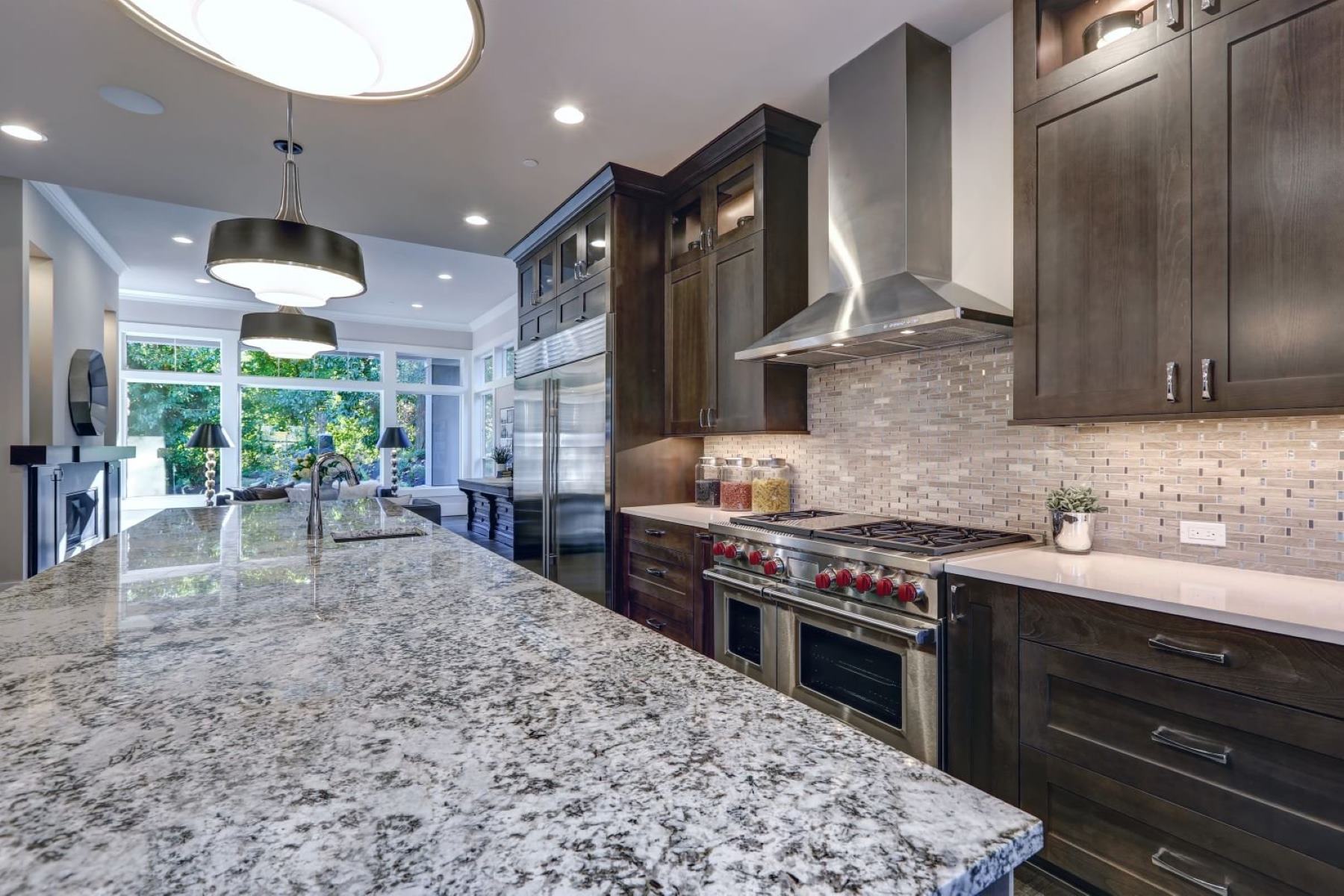
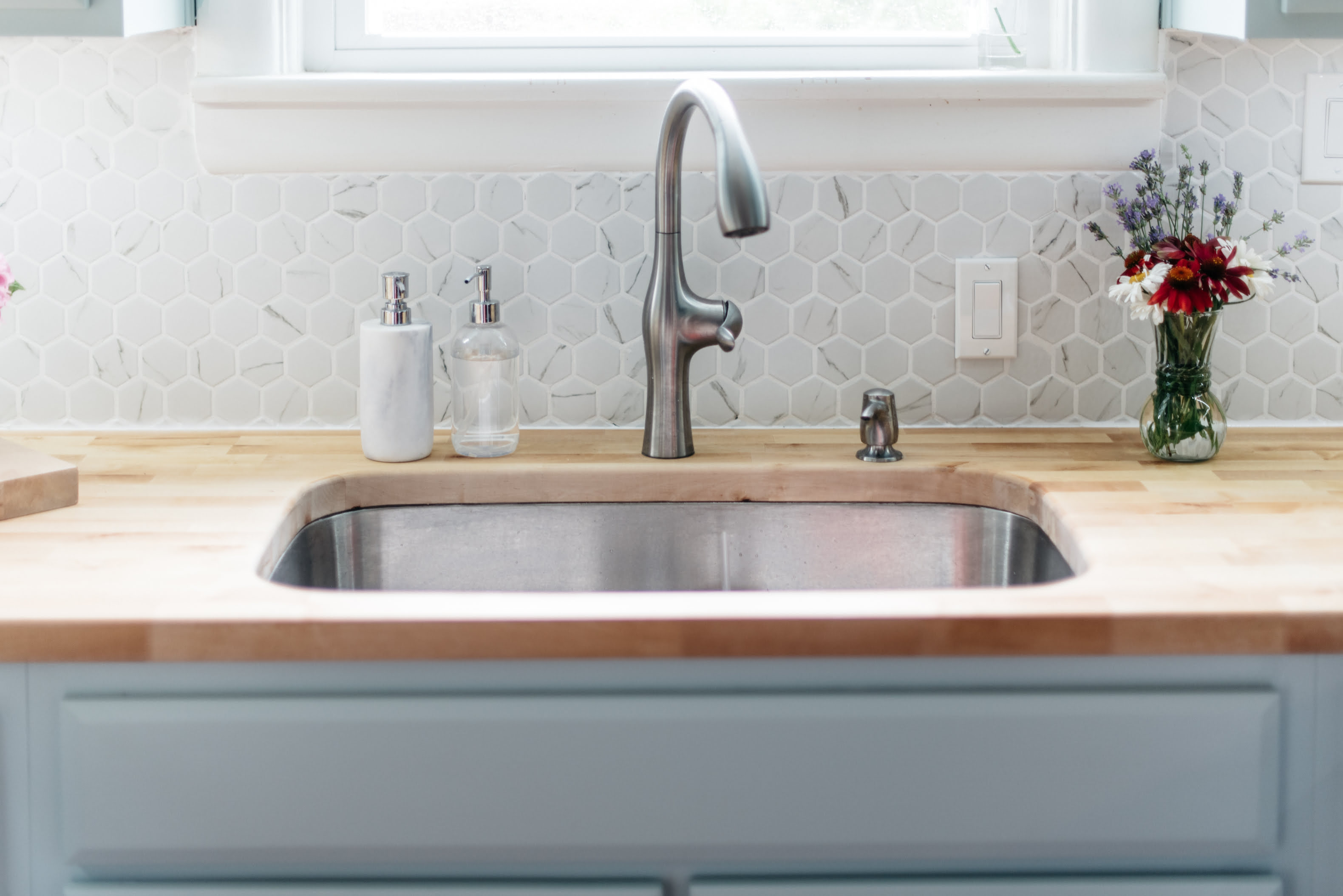
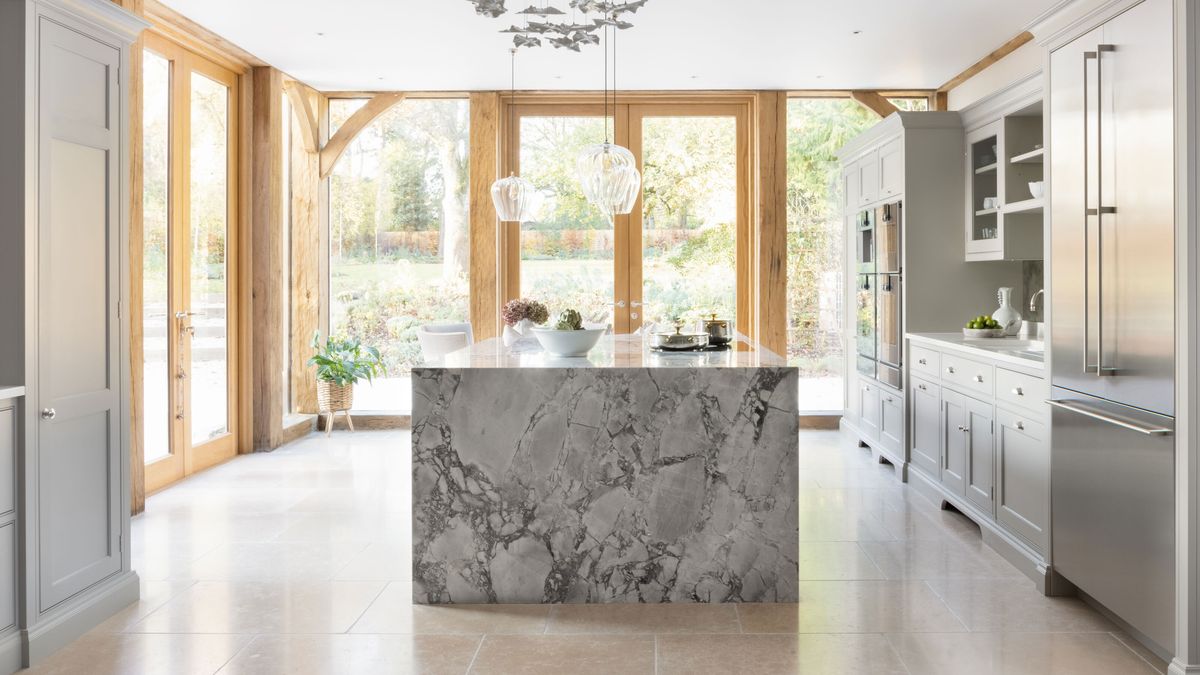

0 thoughts on “How Durable Is Butcher Block Countertops”